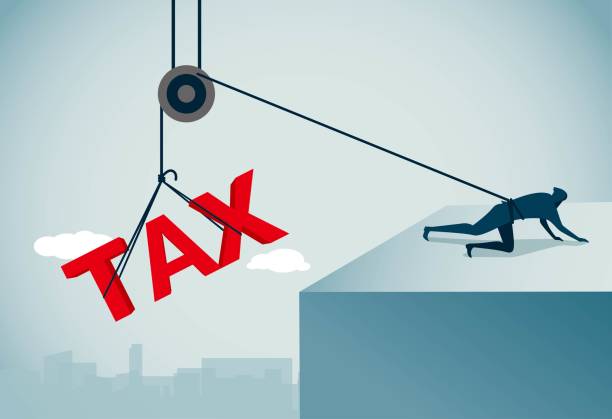The mainstream media regularly carries stories complaining that our capitalistic system ensures that there is an enormous wealth inequality between the various sectors of our society. The usual theme continues to warn that this inequality is growing…that the gap between the wealthiest of the wealthy and the poorest of the poor is growing exponentially. A 2020 report from Inequality.org cites the Congressional Budget Office to raise the alarm that “Between 1979 and 2019, the average income of the richest 0.01 percent of households, a group that today represents about 31,500 people, grew more than nine times as fast as the income of the bottom 20 percent of earners.”1 This report goes on to conclude that “Tax reforms to benefit the rich and big corporations have exacerbated inequality and drained resources from funding vital public programs.”
The report cited above is taken from an article on the Inequality.org website which is an extension of the ultra-liberal, Institute for Policy Studies. It may be surprising to note that their indictment of taxation as an important contributing factor to wealth inequality is a conclusion that can also be found in conservative ‘think’ pieces. For example, John H. Cochrane writing for the conservative Cato Institute states that “If we want to raise revenue with minimal economic distortions (including wealth inequality, emphasis added), the wealth tax is an awful way to do it.”2
With both liberals and conservatives claiming that income/wealth taxation contributes to wealth inequality what is the answer? Well…here liberals and conservatives diverge greatly. For liberals such as those represented by the Institute for Policy Studies (IPS) the answer is ‘a whole lot more of the same.’ In The Simple Rules of Wealth Inequality the IPS boldly states “the wealth of those at the top will grow at a rate faster than the rate of growth for a nation’s overall wealth, unless taxes on the wealthy reach a sufficiently high level.” In other words, the IPS says the answer to wealth inequality is higher taxation for the wealthy…or, much higher taxation for the wealthy than now exists. Under the heading Oxfam Wants To More than Double the Tax Rate on Our Richest, the IPS endorses Oxfam’s (the Oxford Committee for Famine Relief) recommendation that the ‘wealthy’ should be taxed at least to 75% of their wealth/income.3 Setting aside wealth/income levels defining the “Richest” for our purposes in this blog, there are grave mistakes with this sort of thinking…not the least of which is the objection raised by the IPS itself as a problem with current rates of taxation upon the wealthy: the wealthy are able to circumvent tax regulations to pay at a much lower rate.4 If the wealthy can work the system to pay a lower tax rate now, what keeps them from doing it if we just tax them at much higher rates?
On the other hand in Wealth and Taxes cited above, Cochrane makes the case that since “wealth taxes are a poor way to raise revenues, as they would undermine growth and generate large‐scale tax evasion” a consumption tax is a better and more equitable revenue source.
A recent example of a consumption tax is the “Fair Tax” plan that has been proposed and supported over the years by several Republicans in the Congress to streamline taxation and make the tax code more equitable. This plan offers a 23 percent national retail sales tax.5 With everyone paying the same sales tax, the wealthy would pay much more for their much higher rate of consumption of goods and services which would result in much more tax revenue while vastly decreasing wealth inequality. Under the “Fair Tax” plan corporations would no longer pay an income tax but with the loopholes that presently exist in the current federal income tax, corporations often pay no tax at all. The “Fair Tax” eliminates those loopholes and makes corporations pay sales taxes on all the goods and services they purchase…a huge windfall for tax revenue.6
While there are objections to the “Fair Tax” plan that dispute the conclusions above, instead of fact and data, these objections seem to be more based upon a desire to punish those who, as a result of human conditions such as talent and life circumstances, have become very wealthy. It would seem that when all the factors are considered, a consumption tax like the “Fair Tax” plan is the best taxation policy for our nation.
Check the “Fair Tax” out for yourself! Here is the link: Fairtax.org
- Income Inequality. (2020). Institute for Policy Studies. Retrieved from https://inequality.org/facts/income-inequality/#:~:text=The%20most%20rapid%20increase%20has,bottom%2020%20percent%20of%20earners.
- Cochrane, J. (2020). Wealth and Taxes. Tax and Budget Bulletin No. 86. Cato Institute. Retrieved from https://www.cato.org/publications/tax-budget-bulletin/wealth-taxes
- Oxfam Wants To More than Double the Tax Rate on Our Richest. (2023). Institute for Policy Studies. Retrieved from https://ips-dc.org/oxfam-wants-to-more-than-double-the-tax-rate-on-our-richest/
- The Simple Rules of Wealth Inequality. (2021). Institute for Policy Studies. Retrieved from https://ips-dc.org/the-simple-rules-of-wealth-inequality/
- Becker, B. (2007). Huckabee defends Fair Tax proposal to skeptical Ways and Means members. The Hill. Retrieved from https://thehill.com/business-a-lobbying/97546-huckabee-defends-fair-tax-proposal-to-skeptical-ways-and-means-members/
- Hayes, S. (2016). Why Don’t The Big Corporations Endorse the FAIRtax? Fairtax.org. Retrieved from https://fairtax.org/articles/chairman-s-report-december-11-2015




4 Comments
Nancy Thomas
Your site is an essential guide to navigating the complexities of US politics.
Daniel Taylor
The level of detail in your election coverage is unmatched. Absolutely top-notch.
Charles Gonzalez
Your balanced reporting is a rare gem in today’s media landscape. Truly appreciate your work.
Scarlett Alexander
Each blog post is a goldmine of information. I always look forward to reading them.